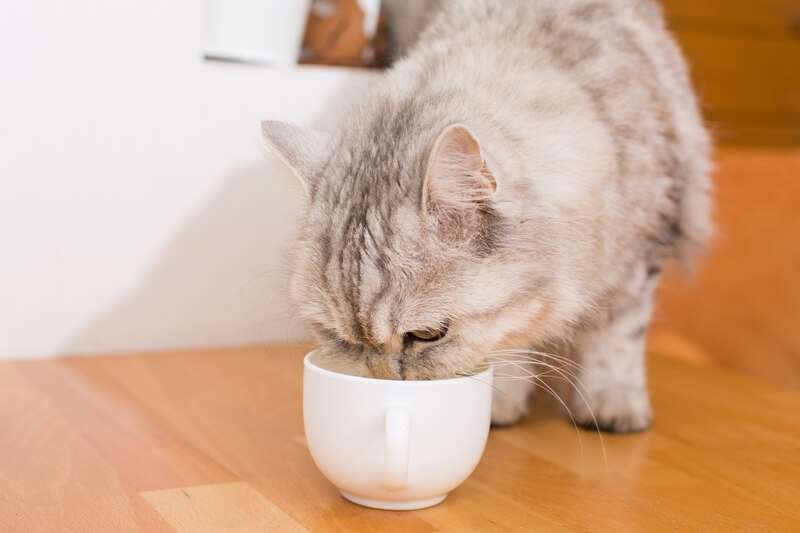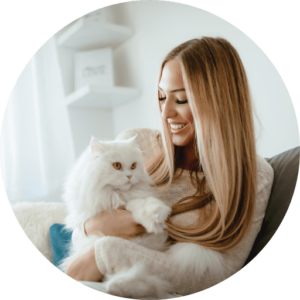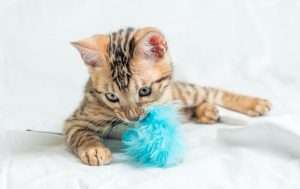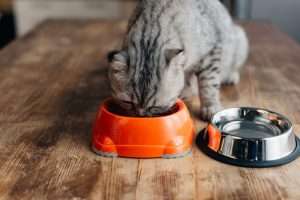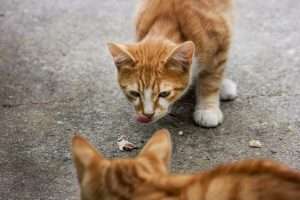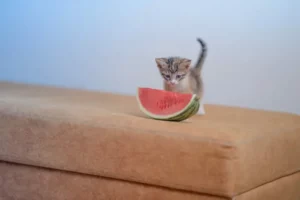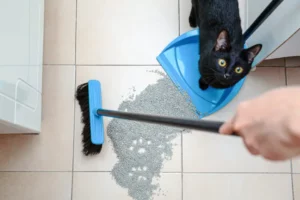Table of Contents
As cat owners, we want to ensure that our feline companions are getting a balanced diet that meets their nutritional needs. While cats are obligate carnivores, and their diet should primarily consist of protein from meat sources, it’s natural to wonder about alternative sources of nutrition such as plant-based milk like oat milk.
Can Cats Have Oat Milk? In this article, we will explore whether or not oat milk is safe for cats to consume. We will examine the nutritional value of oat milk, the potential risks and benefits of feeding it to cats, and provide alternatives to oat milk that are more suitable for feline consumption. It’s important to understand what foods are safe for cats to eat and the potential harm of feeding them unhealthy human foods.
By the end of this article, you’ll have a better understanding of whether or not oat milk is a good choice for your cat and how to provide them with a balanced diet.
Nutritional Value of Oat Milk for Cats
Oat milk has been increasingly popular among health-conscious individuals due to its plant-based and lactose-free properties. But can cats have oat milk? In this section, we’ll explore the nutritional value of oat milk for cats and whether it’s a suitable addition to their diet.
Oat milk is made from oats and water, and it contains various vitamins and minerals such as Vitamin D, Vitamin A, and calcium. However, compared to cow’s milk, oat milk has lower levels of protein and fat. While cats require protein in their diet for various functions, including building and repairing tissues, fat is also an essential source of energy for their bodies. Therefore, oat milk should not be a primary source of nutrition for cats.
Additionally, it’s worth noting that cats are obligate carnivores, meaning they require a high protein diet mainly sourced from animal products. Oat milk cannot provide the essential amino acids that cats need to maintain their health. Hence, oat milk is not a necessary addition to their diet.
That said, oat milk does have some potential benefits for cats. Oat milk is a plant-based source of nutrients, which may be useful for cats with lactose intolerance or other digestive issues. Furthermore, oat milk is low in calories and fat, making it a suitable option for cats that need to lose weight.
While oat milk does have some nutritional value, it’s not a necessary addition to a cat’s diet. Cats require high-protein diets primarily sourced from animal products, and oat milk cannot provide them with the essential nutrients they need to thrive. However, oat milk may be beneficial for cats with lactose intolerance or those needing to lose weight.
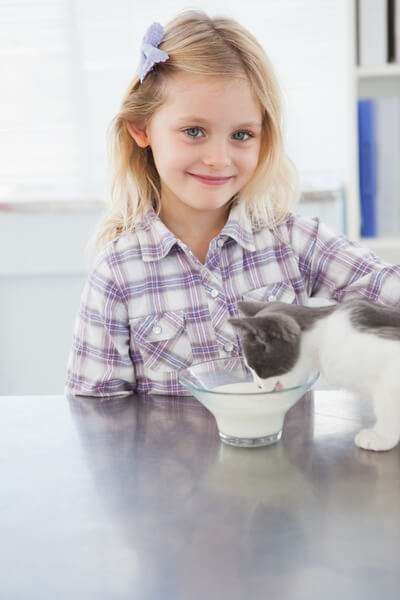
Can Cats Have Oat Milk?
Oat milk is a non-dairy milk alternative that is becoming increasingly popular among humans. However, when it comes to cats, the safety of oat milk as a part of their diet is a matter of concern.
While oat milk is generally considered safe for humans, it may not be suitable for cats. Cats are obligate carnivores, which means that they require a diet that is high in animal protein. Oat milk does not provide the necessary nutrients that cats need to thrive, such as taurine, which is essential for a cat’s heart health and vision.
Feeding oat milk to cats can also result in digestive problems. Oat milk contains fiber, which can be difficult for cats to digest. This can lead to bloating, gas, and diarrhea. Additionally, oat milk contains carbohydrates, which are not essential to a cat’s diet and can lead to weight gain and obesity.
Another potential risk of feeding oat milk to cats is the risk of allergic reactions. Some cats may be allergic to oats, and feeding them oat milk can cause an allergic reaction. Signs of an allergic reaction in cats can include vomiting, diarrhea, skin rashes, and respiratory distress.
It is important to note that there are exceptions where oat milk may not be recommended for cats. For example, cats with certain health conditions such as diabetes may not be able to tolerate the carbohydrates in oat milk. Additionally, cats with allergies to oats should not be given oat milk.
In summary, while oat milk may be a healthy choice for humans, it is not necessary or recommended for cats. Cats require a diet that is high in animal protein and does not contain the carbohydrates found in plant-based milk alternatives. If you are considering feeding your cat oat milk, it is important to speak with your veterinarian first to ensure that it is safe for your cat’s individual needs.
Alternatives to Oat Milk for Cats
While oat milk may seem like a healthy and plant-based option for cats, it is not necessary to include it in their diet. There are several alternative sources of fluids that are safe and healthy for cats. Here are some options to consider:
Fresh Water: The most important fluid for cats is fresh water. Cats need access to clean and fresh water at all times to stay hydrated and maintain their overall health. You can provide your cat with water in a bowl or a fountain to encourage them to drink more.
Cat Milk: Cat milk is a specially formulated milk that is designed for feline consumption. It is a good source of hydration and contains nutrients that cats need, such as protein, fat, and vitamins. You can find cat milk in most pet stores or online, and it comes in both liquid and powder form. When choosing cat milk, make sure to select one that is specifically formulated for cats and not cow’s milk.
Bone Broth: Bone broth is a nutritious and flavorful broth made from animal bones and connective tissue. It is a good source of hydration and contains nutrients that are beneficial for cats, such as collagen, glucosamine, and chondroitin. You can make bone broth at home using chicken or beef bones, or you can find pre-made bone broth in stores.
Wet Cat Food: Wet cat food is another source of hydration for cats. It contains water and other nutrients that cats need, such as protein, fat, and vitamins. You can find wet cat food in cans or pouches in most pet stores or online. When choosing wet cat food, make sure to select one that is high in quality and meets your cat’s nutritional needs.
When incorporating these fluids into your cat’s diet, make sure to offer them in addition to their regular meals. You should also consult with your veterinarian to ensure that your cat is getting the right balance of nutrients in their diet.
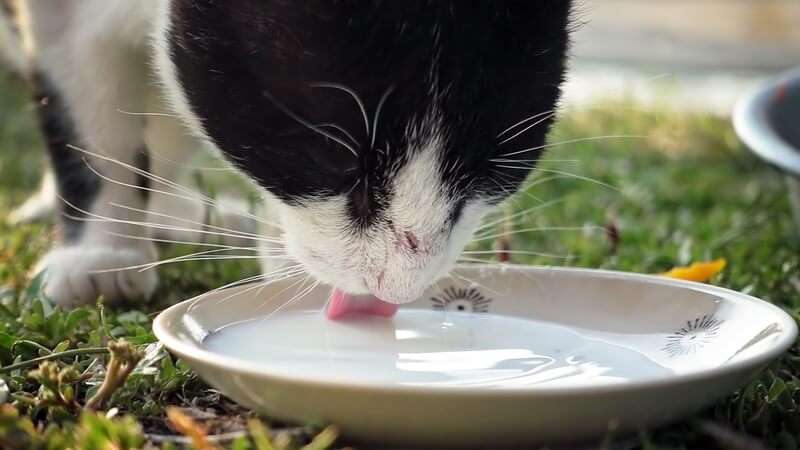
FAQs:
There are no specific types of oat milk that are labeled safe for cats. However, it is important to note that plain, unsweetened oat milk without any added flavorings or sweeteners is less likely to cause harm to cats.
It is generally not recommended to give cats plant-based milks like almond or soy milk as they may not be easily digestible for cats and can cause digestive problems. Additionally, these types of milk may not provide the necessary nutrients that cats need for a balanced diet.
Cats need a balanced diet that includes protein, fat, carbohydrates, vitamins, and minerals. Protein is especially important for cats, as they are obligate carnivores and require a high amount of animal-based protein in their diet.
Cats can potentially be allergic to oat milk, as with any food item. Symptoms of an allergic reaction may include vomiting, diarrhea, itching, or difficulty breathing. If your cat shows any signs of an allergic reaction, seek veterinary care immediately.
If your cat accidentally drinks oat milk, observe them for any signs of digestive problems or allergic reactions. Offer them plenty of fresh water to drink, and monitor them closely for the next 24-48 hours. If you notice any concerning symptoms, contact your veterinarian for advice.
Conclusion
In conclusion, it is important for cat owners to be mindful of what fluids they offer their furry friends. While oat milk may provide some nutrients for cats, it is not necessary in their diet and can pose potential risks such as digestive problems and allergic reactions. Instead, cat owners can opt for safer alternatives such as fresh water and cat milk, which are specifically formulated for feline consumption. It is crucial to ensure that cats have access to clean and fresh water at all times to prevent dehydration and promote overall health.
A balanced diet is essential for cats to maintain optimal health and wellbeing. It is important to consult with a veterinarian to determine the specific nutrient requirements for your cat based on factors such as age, weight, and health conditions. Furthermore, cat owners should always read the labels and carefully choose the fluids they offer their cats to ensure they are safe and healthy options.
If your cat accidentally drinks oat milk or experiences any adverse reactions, it is best to contact your veterinarian immediately. Being aware of what fluids are safe for cats to drink and avoiding potentially harmful ones is crucial to ensure their health and happiness. Always prioritize your cat’s health and wellbeing by consulting with a veterinarian if you have any concerns or questions about their diet or health.


